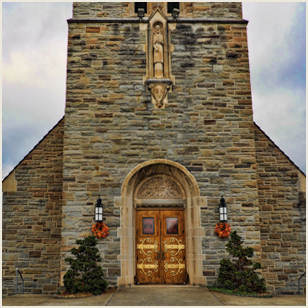Grace, Page: Quotes, Quote Topic
The Word of God, born once in the flesh (such is his kindness and his goodness), is always willing to be born spiritually in those who desire him. In them he is born as an infant as he fashions himself in them by means of their virtues. He reveals himself to the extent that he knows someone is capable of receiving him. He diminishes the revelation of his glory not out of selfishness but because he recognises the capacity and resources of those who desire to see him. Yet, in the transcendence of mystery, he always remains invisible to all.
–Saint Maximos the Confessor (580-662)
Grace, Page: Quotes, Quote Topic
Let no one deceive you. God is light, and to those who have entered into union with him, he imparts of his own brightness to the extent that they have been purified.
–Saint Symeon the New Theologian (949-1022)
Grace, Page: Quotes, Quote Author, Quote Topic, Thomas Merton (1915-1968)
Every breath we draw is a gift of God’s love; every moment of existence is a grace.
–Thomas Merton (1915-1968)
Grace, Page: Quotes, Spiritual (life)
We do not reach the final stage of spiritual maturity through divine power and grace alone, without ourselves making any effort; but neither on the other hand do we attain the final measure of freedom and purity as a result of our own diligence and strength alone, apart from any divine assistance. “If the Lord does not build the house, it is said, and protect the city, in vain does the watchman keep awake, and in vain do the laborer and the builder work.” (Psalm 127:1)
–Saint Macarius the Great (295-392)
Augustine (354-430), Grace, Page: Quotes, Quote Author, Quote Topic
God loves each of us as if there were only one of us.
–Saint Augustine (354-430)
Augustine (354-430), Cross, Grace, Page: Quotes, Quote Author, Quote Topic
The death of the Lord our God should not be a cause of shame for us; rather, it should be our greatest hope, our greatest glory. In taking upon himself the death that he found in us, he has most faithfully promised to give us life in him, such as we cannot have of ourselves. He loved us so much that, sinless himself, he suffered for us sinners the punishment we deserved for our sins. How then can he fail to give us the reward we deserve for our righteousness, for he is the source of righteousness? How can he, whose promises are true, fail to reward the saints when he bore the punishment of sinners, though without sin himself? Brethren, let us then fearlessly acknowledge, and even openly proclaim, that Christ was crucified for us; let us confess it, not in fear but in joy, not in shame but in glory.
–Saint Augustine (354-430)

